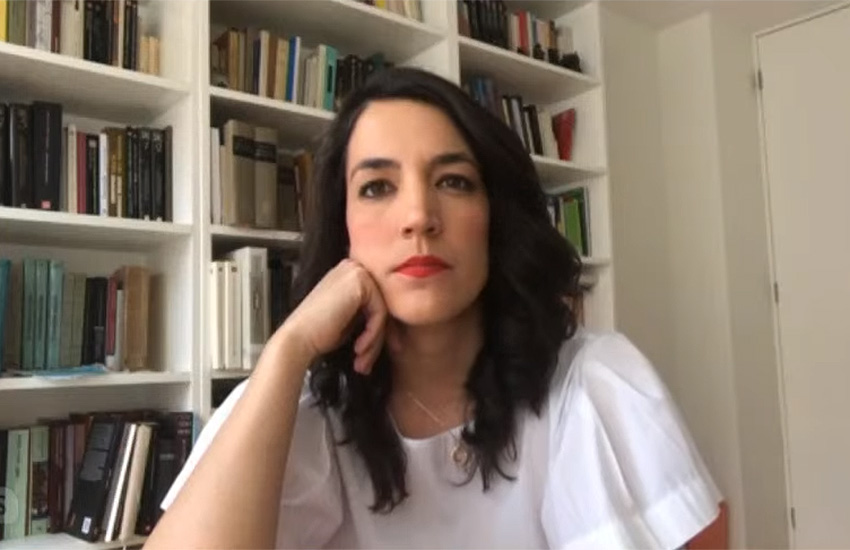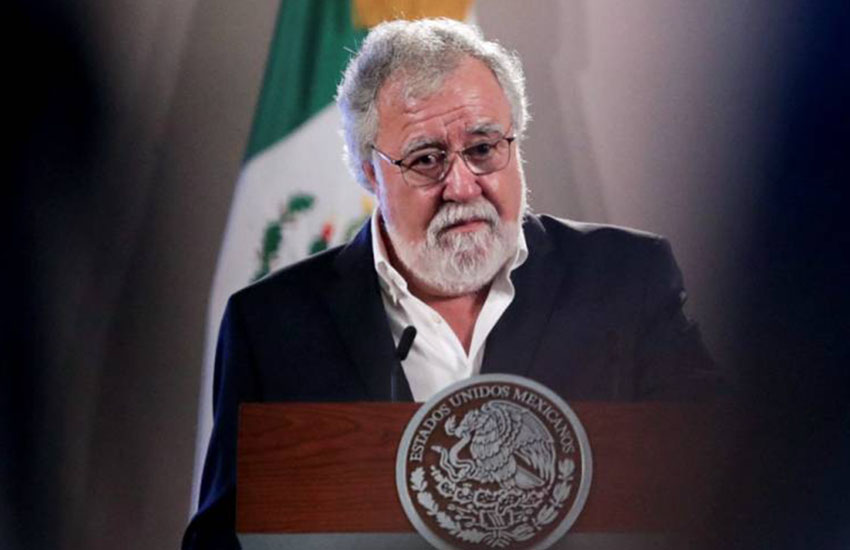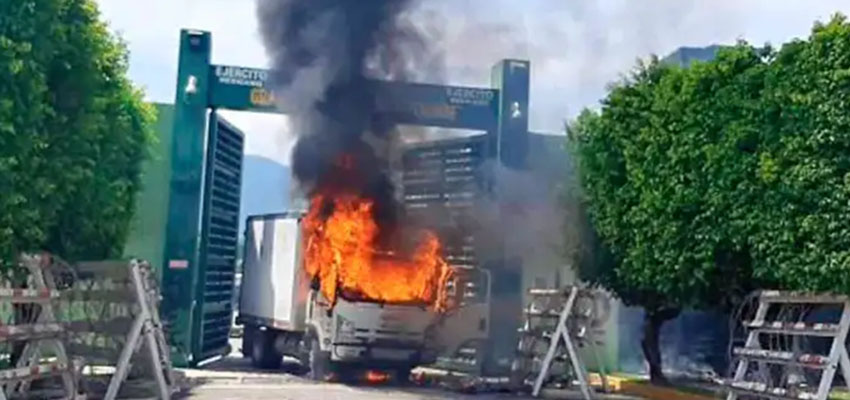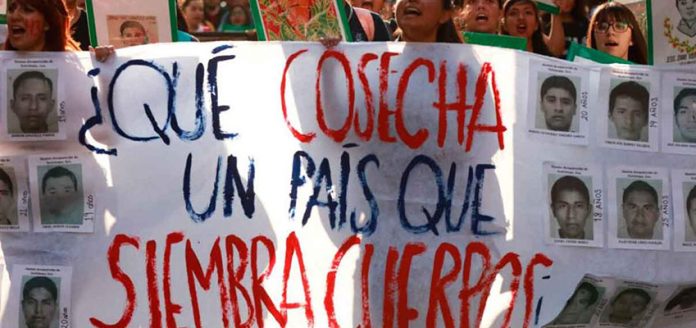More details have emerged about the Ayotzinapa case in which 43 students disappeared in Guerrero on September 26, 2014.
An investigative journalist and columnist for the Reforma newspaper obtained an unredacted copy of the Ayotzinapa truth commission’s recent report on the case and offered a summary of its gory contents.
Meanwhile, the Attorney General’s Office (FGR) successfully requested the revocation of 21 of 83 arrest warrants issued by a federal judge last month, according to a report by the El País newspaper.
In a column published by Reforma on Saturday, Peniley Ramírez wrote that “almost all” of the 43 Ayotzinapa Rural Teachers College students were murdered, dismembered and buried on the night of September 26, 2014.

Based on the truth commission report that was recently submitted to the FGR, Ramírez’s column provided further evidence against the previous government’s so-called “historical truth” – that the students’ bodies were burned at a dump in the municipality of Cocula, Guerrero, after they were murdered by members of the Guerreros Unidos crime gang following their abduction in Iguala.
The Guerreros Unidos criminals – who allegedly believed the students were members of a rival gang – “thought about burning them, but there were a lot of bodies and they changed their mind,” Ramírez wrote. “They divvied them up [and], each criminal group got rid of the remains … as they could.”
Five bodies were dissolved in acid, but most of the students were hacked up and buried, Ramírez wrote.
Six students who were not killed on the night of September 26 after buses on which they were traveling were intercepted by Iguala police were allegedly taken to a warehouse on the outskirts of that city the next day. They were allegedly murdered days later on the orders of José Rodríguez Pérez, who was an army colonel at the time and later became a general.
He and three other army personnel accused of involvement in the case are now in custody, as is former attorney general Jesús Murillo Karam, who is considered the key architect of the allegedly fabricated “historical truth.”
The truth commission report – of which a redacted version was made publicly available last month – asserts that the military played a central role in the disappearance of the students. It also implicates government officials, including then-mayor of Iguala José Luis Abarca – who was allegedly complicit with the Guerreros Unidos – and Tomás Zerón, who was head of the now-defunct Criminal Investigation Agency.
Ramírez wrote that Abarca “advised his contacts in the army that Tomás Zerón, sent by [then-president] Enrique Peña Nieto, had proposed that he ask for leave and disappear.”
Zerón allegedly offered to help the mayor leave the country if he first admitted he was behind the murder of the students.

“From September 29 [2014], the coverup started,” Ramírez wrote. “In the chats where they had previously coordinated the murders, criminals, officials and military men spoke about how to dig up the bodies to take them to the [base of the] 27th infantry battalion. Nobody would go in there. In the middle of November, they were still digging up and moving bodies,” she said.
“… A few weeks ago, [the government’s] Commission for Truth and Access to Justice in the Ayotzinapa Case published a report. … A public version of the report was disseminated in which almost the entire account, and the messages that the participants, their partners and their children exchanged, are redacted. The messages show the shame of that night and the following weeks and months,” Ramírez wrote.
“… This report opens up new … lines of investigation, suggests new places to look for the remains. The commission believes that Ayotzinapa was a crime of the state. … The source who shared the document with me told me that he [or she] was doing so because he [or she] believes that investigating these new clues is vital,” she wrote.
Deputy Interior Minister Alejandro Encinas, president of the truth commission, expressed a very different view, saying that the leaking of the unredacted report could compromise the investigation.
“I condemn the regrettable leaking of the information submitted to the FGR,” he wrote on Twitter.
“… It’s completely irresponsible and [shows] a lack of respect to the fathers and mothers of the missing students. … Far from helping the investigation, these kinds of leaks are detrimental to it and open the way to impunity. I ask the FGR to initiate an investigation to identify and punish whoever is responsible for this serious leak,” Encinas said.
Ramírez defended the publication of her column, writing on Twitter on Sunday that “journalism tells the truth” and “helps us to understand our society, even though it hurts.”

El País said the same day that it had obtained documents showing that the same judge who issued 83 arrest warrants against Ayotzinapa suspects had revoked at least 21 of them at the request of the FGR. Only four of the warrants – issued for the arrest of military commanders and soldiers, administrative and judicial officials in Guerrero, municipal and state police officers and Guerreros Unidos members – have been executed.
Sixteen of the 21 canceled warrants correspond to army personnel, 15 of whom were accused of involvement in the forced disappearance of the students, El País said. A México state-based federal judge has also revoked warrants for the arrest of former Guerrero Attorney General Iñaki Blanco, a Guerrero-based judge and three judicial officials in that state.
The FGR’s request to have the warrants revoked is curious because it applied for them just last month. Citing sources close to the case, El País reported a breakdown in relations between the FGR itself and the unit within the same agency that is in charge of the investigation into the Ayotzinapa case.
Differing opinions held by Attorney General Alejandro Gertz Manero and the Ayotzinapa unit over the pace of the prosecution against Murillo Karam are responsible for the “rupture,” El País said. The FGR reportedly requested the revocation of the 21 warrants against the wishes of the Ayotzinapa unit.
Revelations about the army’s alleged involvement in the students’ disappearance have triggered protests and attacks at military facilities in the lead-up to the eighth anniversary of the heinous crime. An army base in Guerrero capital Chilpancingo was attacked by Ayotzinapa students after a protest on September 13, while a Mexico City base was targeted last Friday.
With the revocation of warrants against 16 army personnel allegedly involved in the Ayotzinapa case, the anger of students and parents of the missing 43 looks likely to intensify. A protest march marking the passing of eight years since the students disappeared will take place in Mexico City on Monday. Past marches, in the national capital and elsewhere, have turned violent.
With reports from El País and Aristegui Noticias
